Laidback Luke Talks Vintage DJ Gear!
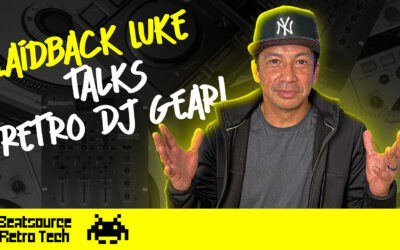
International touring DJ, producer and founder of Mixmash Records, Laidback Luke, was appearing at a festival close to the DJcity UK lab last week. So Moja...
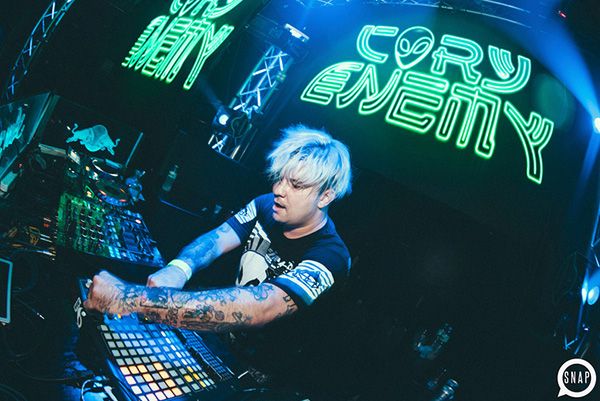
Cory Enemy performs on Bro Safari’s “Black Out Tour” on Sept. 12, 2014 in Tampa, Florida. (Oh Snap Kid)
Los Angeles producer/DJ Cory Enemy is best known for mentoring Dillon Francis and crafting pop songs for stars like Chris Brown and Ellie Goulding. Now, after years of grinding behind the scenes, the Grammy-nominated producer is reinventing himself as a solo act.
From 2007 to 2011, Cory was part of a production team led by the legendary Dallas Austin, whose credits include Boyz II Men’s “Motownphilly” and TLC’s “Creep.” Austin had discovered Cory at a Las Vegas nightclub, and within months signed him to a production deal and began mentoring him in Atlanta. Cory, who grew up in a small town near Death Valley, California, was now surrounded by southern rap icons like Gucci Mane and Waka Flocka Flame.
Around that time, a young Dillon Francis caught wind of Cory’s new job in Atlanta and asked to be his intern. The two had known each other through the Hollywood club circuit, where Cory DJed at parties with Steve Aoki and DJ AM. At first, Cory wasn’t sold on the idea of mentoring Francis, but he eventually agreed and Francis shadowed him in Atlanta for about a year. The two became close friends, and the rest is history.
By 2011, Cory had returned to Los Angeles to launch a production company with Austin, who was now his partner. The two worked with artists like Lady Gaga, Chris Brown, Katy Perry, David Guetta, Ellie Goulding, and Carly Rae Jepsen. But despite making good money and working with some of music’s biggest stars, Cory grew tired of pop music. That’s when Brillz, the founder of the Twonk movement, convinced him to embrace his inner weirdness and launch a solo career.
Things are looking good so far. Cory’s latest release, a remix of a cover of Jack U’s “Where Are U Now,” had the rare honor of getting reposted on Diplo’s personal SoundCloud page (the Mad Decent chief’s curation usually happens on his “Diplo Approved” account). Before that, Cory dropped “Ibanez” with A-Trak, a guitar-laden groover with 640,000 SoundCloud plays. His next single, a collaboration with buzzing UK duo AlunaGeorge, is set to drop soon.
As if that wasn’t enough, Cory recently launched a production company and music collective called SPKTRM with former Diplo collaborator Djemba Djemba.
We sat down with Cory at his home in Hollywood to discuss his diverse and accomplished career and what we can expect from him in the future.
Download on DJcity
How did living in Atlanta influence your sound?
Atlanta is a very particular place — it’s a music mecca. There’s so many talented artists and producers that have come from there in the last three decades. I got the opportunity to work with some very talented people and the urban flair was injected into what I do.
Who did you meet there?
Dallas knows everyone. We worked with Gucci Mane, Waka Flocka Flame, and Jazze Pha. I used to sit there and watch Jazze, he’s the funniest dude. Drumma Boy had a room in Dallas’ studio and was there all the time. Also, Dallas’ mom is famous for her cooking and every Sunday she would come over to his house and make the most incredible southern meal. CeeLo Green and Steve Harvey were always there. The list goes on.
Wasn’t Justin Bieber in Atlanta around that time?
Yeah, Bieber’s manager Scooter Braun was Dallas’s production assistant — he worked with Dallas for years. I remember the first time Scooter brought Justin around, it was before he put out his first song. He was singing and playing drums in the studio — I thought he was very talented.
How did you end up mentoring Dillon Francis?
I didn’t know him that well at the time, but we had a lot of mutual friends in Los Angeles. After he had graduated high school, he hit me up and asked to be my intern. He had just started producing and his tracks were really bad. [laughs] Everyone’s tracks are bad when they start but what interested me was the crazy amount of drive that he had. We also got along and I thought he was a funny dude. [laughs] So, I told him to come to Atlanta and sleep on my couch and he stayed with me on and off for like a year. We continued working together after I returned to Los Angeles and made an EP called Ultra.
What kind of influence did you have on him?
He ghosted me and was with me every second of the day while we were in Atlanta. I showed him everything I knew how to do. I think my signature technique of chopping up vocals and making melodies out of them had an influence on him. I’ve been using that technique ever since the Philippians, one of my first bands.
You did a brief stint in New York City. What did you accomplish there?
I had a lot of friends there and an opportunity to be Sky Ferreira’s music supervisor. But I ended up getting approached by the record label people I had met through Dallas in Atlanta. They realized that EDM was going to be the next big thing and remembered that I was the kid at Dallas’ studio who tried to get them to listen to deadmau5. So they invited me to their offices and I made good relationships with executives like [Sony Music’s] Peter Edge. I got hired to do remixes and that inspired me to shop my tracks.
Is that when you started focusing on pop music?
I actually went back to Atlanta after spending about a year in New York. At the time, Dallas was working with Chris Brown, but they were in a rut and asked for my help. Chris told me that he wanted to make a dubstep track so I produced a song for him and it turned into “Key 2 Your Heart.” Chris and his label loved it and people were freaking out because no one had done a dubstep-pop crossover yet. The song was my first placement and I got a lot of opportunities immediately after producing it.
What kind of opportunities?
Dallas asked if I wanted to start a new production company with him as an equal partner, which is something that he wouldn’t have done before. I was like, “Holy sh#t, this is f#cking crazy.” My only stipulation was that we had to move to Los Angeles. I couldn’t live in Atlanta with everything that was happening in LA at the time — the EDM scene was blowing up. So, we moved there in a month and built a studio on La Brea [Avenue], which is where he’s still at. That’s when I honed my ability to produce pop. We got a lot of placements during that time.
Are there any notable songs that you didn’t receive credit for?
There’s a lot of tracks that I’m not credited on, although I always had some publishing. I wasn’t credited for any of the Katy Perry songs that I co-produced, but I got the opportunity to remix her song “Peacock” and it was included on her album Teenage Dream. It’s actually the only remix that’s been included on one of her albums as a bonus track. I got credited for everything once I started the production team with Dallas, though.
So why did you stop producing for pop artists?
I got really sick of being asked to make Calvin Harris songs over and over again. Progressive house is all that the labels wanted, but I wanted to push into the future. I had accomplished a lot with pop and I knew it would always be there for me so I said “f#ck it” and decided to focus on being an artist.
Did you feel pressured to focus on a particular style?
Yeah, but I wasn’t willing to compromise my creative integrity just to get a following. From a marketing standpoint, it’s important to have “a sound,” but I would hate my life if people expected me to make the same song over and over again. I can make a lot of different styles and I’m influenced by a lot of different things so I try to mesh them all together.
What’s the response been?
I think fans are opening up more than ever before, and as a result, artists are feeling less pigeon-holed. I’ve got every style of bass music on my SoundCloud page and my fan base is growing. They appreciate all of it and the most common comment that I get is that I’m versatile. I’m also able to play whatever I want at shows: trap, future bass, house, and big room. It’s working and kids are liking it.
Download on DJcity
And you’ve avoided becoming a jack of all trades and a master of none.
I can make a song from start to finish in a day and not a lot of guys can do that. When I find a sound that I like, I’ll wrap my head around it and make 50 songs in that genre. I’ll learn it, develop it, and then make it my own. So before I release a song in that style, I have already made a bunch that will never see the light of day or end up getting sold to someone else.
What about your new production company and collective? Who’s involved in that?
It started out with just Djemba Djemba and me, but Sweater Beats is now involved and Dallas is helping out with A&R. He’s our Don Draper. We’ve also got a handful of other producers on the team like Dan Farber and Black Monday.
How is it different from all the other production companies?
The demand for the future sound is increasing and we want to be the go-to production company for it. Our plan is to put a high volume of authentic future-sounding music that we can then translate to radio and shop to labels. Right now we’re working on records for Kanye West, Tinashe, and Janet Jackson, just to name a few.
Related: Dillon Francis on Going from Club Promoter to Festival Headliner

International touring DJ, producer and founder of Mixmash Records, Laidback Luke, was appearing at a festival close to the DJcity UK lab last week. So Moja...

*** UPDATE: check out our updated 2024 and 2025 playlists! Wedding season has arrived! DJcity’s Remix Director Sir Marcus has put together a list of...
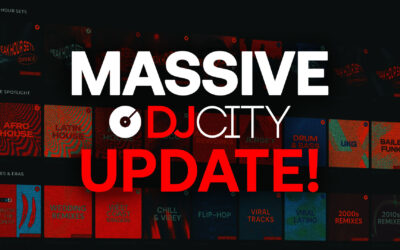
Big news for DJs everywhere: DJcity just rolled out one of its biggest website updates ever - designed to make music discovery faster, easier, and more pow...
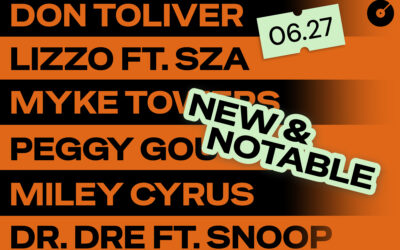
Notable tracks that were added to DJcity this week. View them all here. Download the tracks below. (* indicates DJcity Exclusive) Don Toliver – FWU Lizzo...
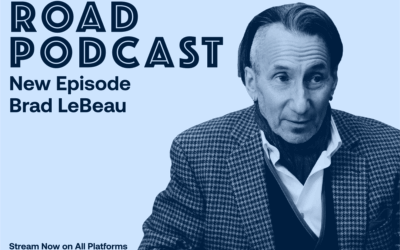
This week on @RoadPodcast, the crew sits down with legendary music marketer, DJ, and founder of @promotion1983, Brad LeBeau, for an unfiltered conversation...

The Elite is Reloop’s flagship mixer, but Mojaxx never reviewed it back when it was released in 2019. Partly that was down to logistical reasons, but also...
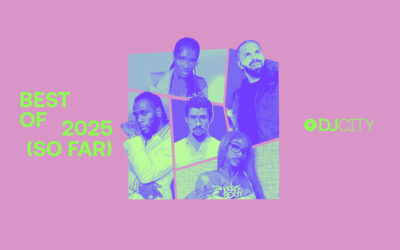
Best of 2025 (So Far): DJcity’s Most Downloaded TracksOriginals + Remixes & Edits We’re halfway through the year, and it’s time to spotlight the tracks...
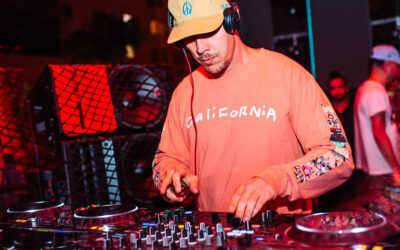
Diplo performs at Hyde Beach in Miami on March 23, 2018. (Credit: Dylan Rives/World Red Eye) Since 1823, Oxford University's historic debate society, the O...
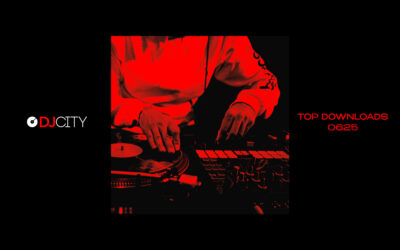
These are DJcity’s most downloaded tracks of June 2025. Our monthly charts feature top downloads from around the world, plus regional charts for Latin, UK...

Colombian singer Shakira has released a stunning music video for her new Reggae-tinged single, "Can't Remember to Forget You," featuring Rihanna. The visua...